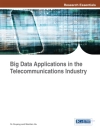Discover cutting-edge research in wireless communications
This book presents cutting-edge research in wireless communications, particularly in the fast-growing subject of multiple-input multiple-output (MIMO) wireless communication systems. It begins with an introduction, which includes historical notes and a review of turbo-information processing and MIMO wireless communications, and goes on to cover:
* MIMO channel capacity
* BLAST architectures
* Space-time turbo codes and turbo decoding principles
* Turbo-BLAST
* Turbo-MIMO systems
The material is complemented with abundant illustrations and computer experiments that are designed to help readers reinforce their understanding of the underlying subject matter. Space-Time Layered Information Processing for Wireless Communications is an ideal resource for researchers in academia and industry and an excellent textbook for related courses at the graduate level.
Tabla de materias
List of Tables.
List of Figures.
1 Introduction.
1.1 Brief Historical Notes.
1.2 Turbo-Information Processing.
1.3 MIMO Wireless Communications.
1.4 Organization of the Book.
2 MIMO Channel Capacity.
2.1 Introduction.
2.2 Multiple-Input, Multiple-Output Antenna Systems.
2.3 Channel Capacity.
2.4 MIMO Capacity for a Channel Known at the Receiver.
2.5 Channel Known at the Transmitter.
2.6 Summary and Discussion.
3 BLAST Architectures.
3.1 BLAST Architecture.
3.2 Diagonal BLAST.
3.3 Vertical BLAST (V-BLAST).
3.4 Stratified Diagonal BLAST (SD-BLAST).
3.5 Simulations on BLAST for the Matrix Rayleigh Channel.
3.6 Multirate Layered Space-Time Architecture.
3.7 Outage Capacity.
3.8 Simulation Results.
3.9 Summary and Discussion.
4 Space-Time Turbo Codes and Turbo Decoding Principles.
4.1 Introduction.
4.2 Turbo Codes.
4.3 Interleaver Designs for Turbo Codes.
4.4 Space-Time Turbo Codes.
4.4.1 Example Space-Time Turbo Codes.
4.5 Multirate Layered Space-Time (MLST) Turbo Codes.
4.6 Summary and Discussion.
5 Turbo-BLAST.
5.1 Introduction.
5.2 T-BLAST: Basic Transmitter Considerations.
5.3 Optimal Detection.
5.4 Distance Spectrum of RLST Codes.
5.5 Iterative Decoding: Basic Considerations.
5.6 Design and Performance of SISO Detectors.
5.7 Simulations on T-BLAST.
5.8 Summary and Discussion.
5.9 Appendix.
6 Turbo-MIMO Systems.
6.1 Bit-Interleaved Coded Modulation.
6.2 Turbo-MIMO Theory and ST-BICM.
6.3 ST-BICM.
6.4 Iterative Detection and Decoding.
6.5 Suboptimal MIMO Detection.
6.6 Simulation for Narrowband Turbo-MIMO.
6.7 Wideband Turbo-MIMO (ST-BICM).
6.8 Summary.
Appendix 6.1.
Appendix 6.2.
Bibliography.
Index.
Sobre el autor
Mathini Sellathurai, Ph D, is Reader at the Institute of Electronics, Communications and Information Technology, Queen’s University Belfast, United Kingdom. SIMON HAYKIN, Ph D, is Distinguished University Professor at Mc Master University, Ontario.












